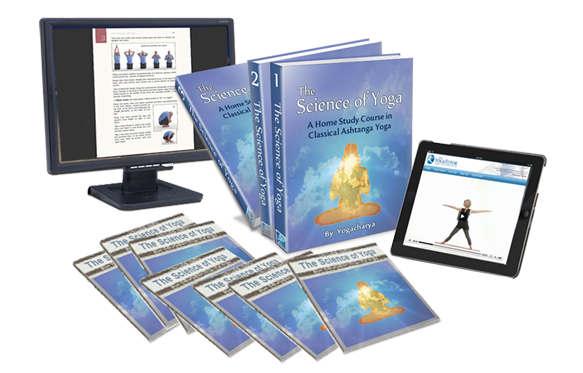[ Excerpt from The Science of Yoga, page 401 ]
It should be obvious that if one were simultaneously burdened with all of the lessons necessary to evolve from a lower, un-evolved condition to the transcendental state, that it would be an overwhelming impossibility. So within each new birth, the jiva (individual soul) is allocated so-to-speak, just enough karma for it to continue to grow and to evolve. This allotment is referred to as prarabdha karma.
Remember that Nature does not itself present us with more than we are capable of handling. Of course some people do find themselves in situations which are 'too much' for them and which may even ultimately destroy them completely. But this is not of Nature's doing. Rather, it is through ignorance that one evokes more negative circumstances for themselves then they would normally have had to work through.
By and large, however, the force of prarabdha karma is sufficient to prod us toward our true potential -- to awaken in us our inherent and untapped strengths, which when latent, can often make situations seem beyond one's capacity to overcome. It is through proper understanding and intelligence, that one is able to uncover their hidden resources.
The results of the actions which we are consciously performing are known as kriyamana karma. We have so far come to understand that what we 'are' today is the cumulative result of all that we have done in the past. This is precisely why it is essential to cultivate higher understanding and to develop an understanding of the cause and effect relationships -- so that we can become, as a result of our attitudes, thoughts and actions, what we want to become.
Conversely, sanchita karma is karma that is being created unconsciously, or rather, as a result of foolish ignorance of truth. This is endemic in today's world, where so many go about their daily lives in blissful ignorance to the real karmic results that they are constantly generating through their actions. When this improper thinking does not manifest in immediately noticeable results (good or bad) for the thinker (i.e., instant karma), which is often the case, then the foolish behaviours and thoughts simply continue, eventually becomes a conditioned pattern within the subconscious mind.
Unfortunately the law of karma is firm and eventually, as the saying goes, "the hens will return home to roost." Hence, this form of karma can ripen quickly once it is eventually set into motion and the effects can be drastic and even devastating to one's life and one's perception of reality.
This is observed in familiar cases where an otherwise seemingly pleasant, peaceful and healthy life is completely upturned in a catastrophic way, be it a dreadful accident, financial crash, etc, etc. A further tragedy often occurs because the individuals, even in the face of this sudden and severe karmic response, may not perceive that they themselves were responsible -- that the source cause of their tragic misfortune was their own wrong thinking or wrong actions.
Therefore they will not feel deserving of or responsible for what has happened to them, project themselves as a victim and continue to make the same mistakes over and over again.
This type of karma is widespread today, as it results out of a turbulent (rajasic) mind -- a product of modern day cultures where higher understanding and awareness of the cause and effect relationships are not nurtured...
[Continued...]
---------------------
NOTE: This yoga article is an excerpt from The Science of Yoga, an online yoga training program with streaming yoga videos and 600 pages of step-by-step yoga instruction.

"The Science of Yoga is a course worthy of
leather binding and an honored place in the
finest libraries in the world
... It is indeed a masterful work."
Dr. John Michael Christian
AwakeningWithYoga.com
Learn More About
The Science of Yoga Course
|






